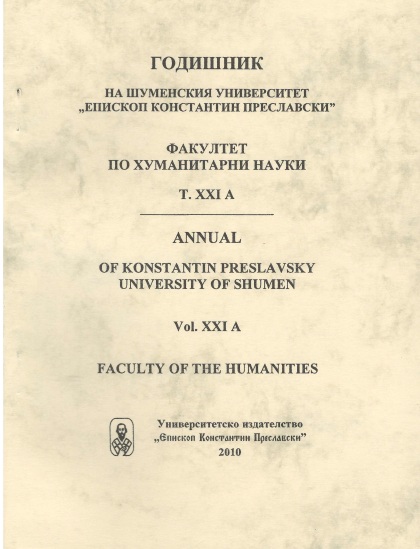Магията на чуждостта в романа на Инга Дьор Хамбург-Варна, а обратно?
The magic of the other in Inga Deor’s novel Hamburg-Varna, or the other way round?
Author(s): Snezhana BoychevaSubject(s): German Literature
Published by: Шуменски университет »Епископ Константин Преславски«
Keywords: Inga Deor, otherness
Summary/Abstract: In the novel Hamburg-Vama, or the other way round? by Inga Deor two different cultures meet, two value systems - the Western-European and the Balkan (Bulgarian). That meeting determines the awareness of the native/local as well as the other, strange, foreign on behalf of the recipient Inga Deor. Meeting the other sets as a prerequisite her way out of the uncertainty and confrontation against the other, passing through the inevitable cultural shock up to her interest in the other which in certain moments rises to the level of elatedness and a feeling of belonging and integration to another world. The last stage of the intercultural dialogue way is the self-reflection viewed through the eyes of the individual life experience, gained under foreign culture circumstances. On the other hand there is no interpretation of the intercultural meeting as an elementary process of adaptation after a complete loss of one’s own cultural identity. The Western-European clichés and stereotypes about Bulgaria Deor “revises”, relates and deactualizes in the process of literary reception. The result is focused on the adoption of the other not only as a threat, but also as an irresistible power of attraction and a stimulus for a new beginning. In that respect Inga Deor’s novel seems to be a dialogue of two cultures, which demonstrates the dialogue culture and that exactly is the author’s contribution to the dialogic principle in communication, the most certain way by which the different viewpoints could be waded through by means of mutual understanding.
Journal: Годишник на Шуменския университет "Епископ Константин Преславски". Факултет по хуманитарни науки
- Issue Year: XXI/2010
- Issue No: 1
- Page Range: 162-171
- Page Count: 10
- Language: Bulgarian

